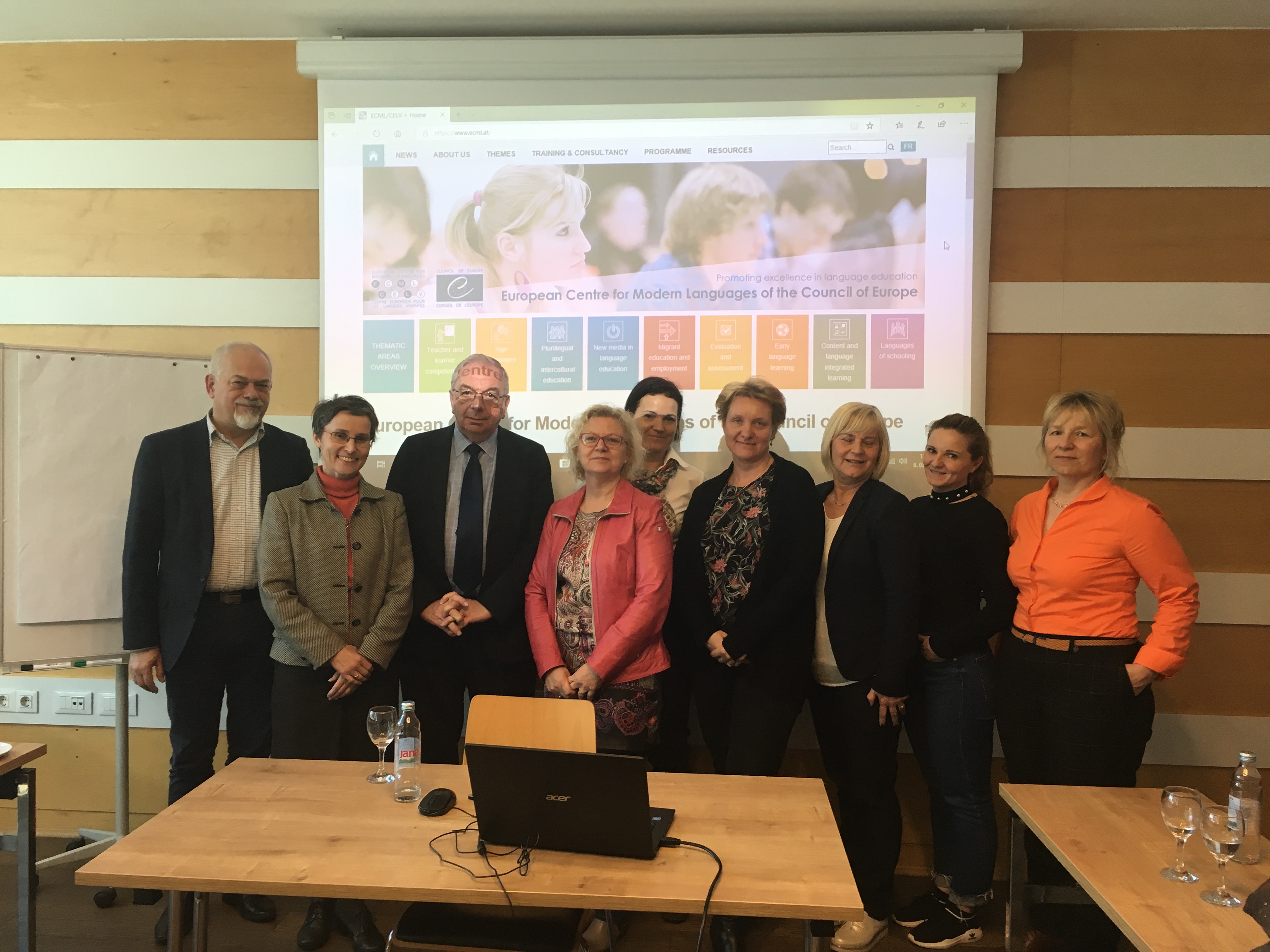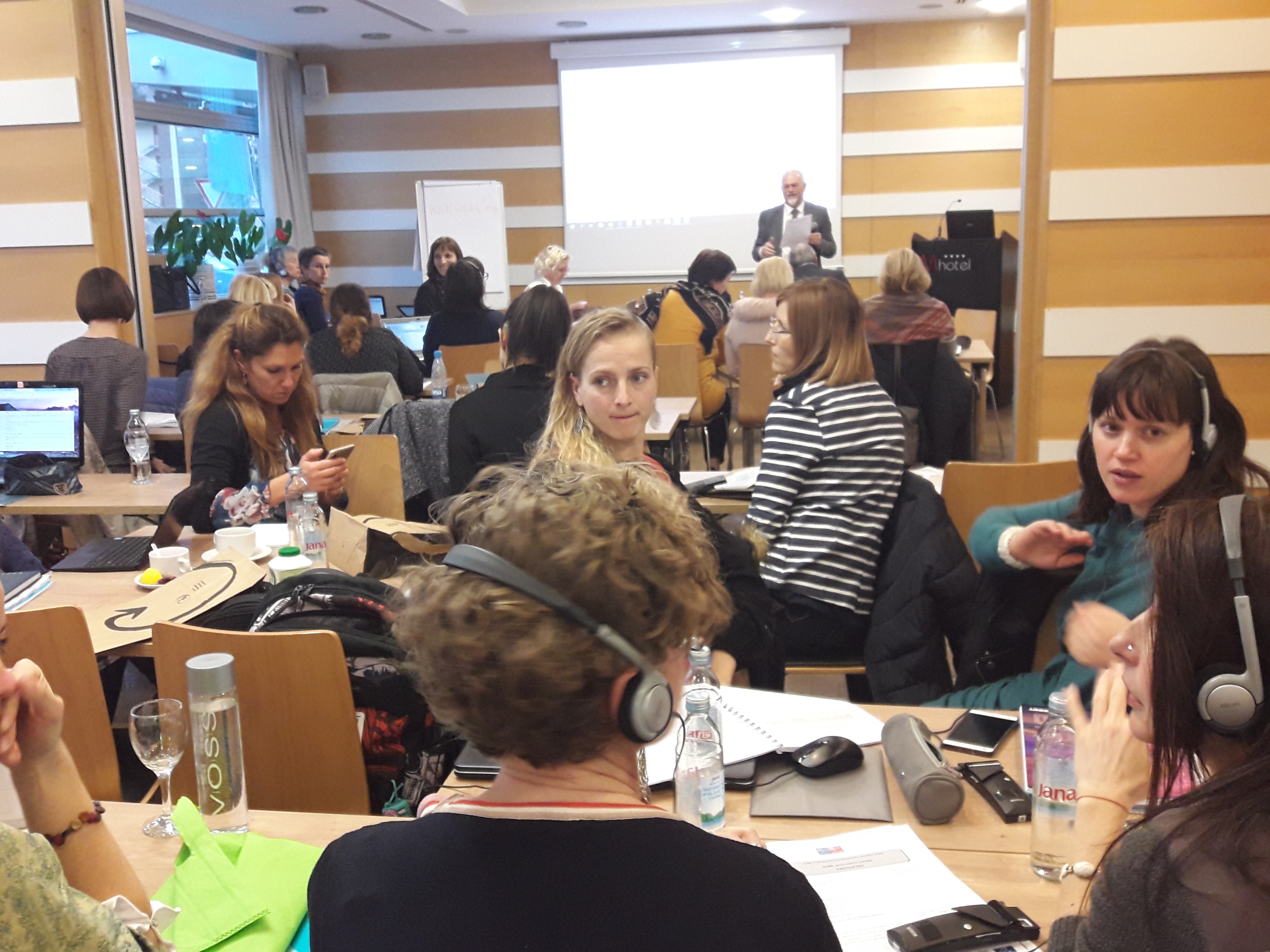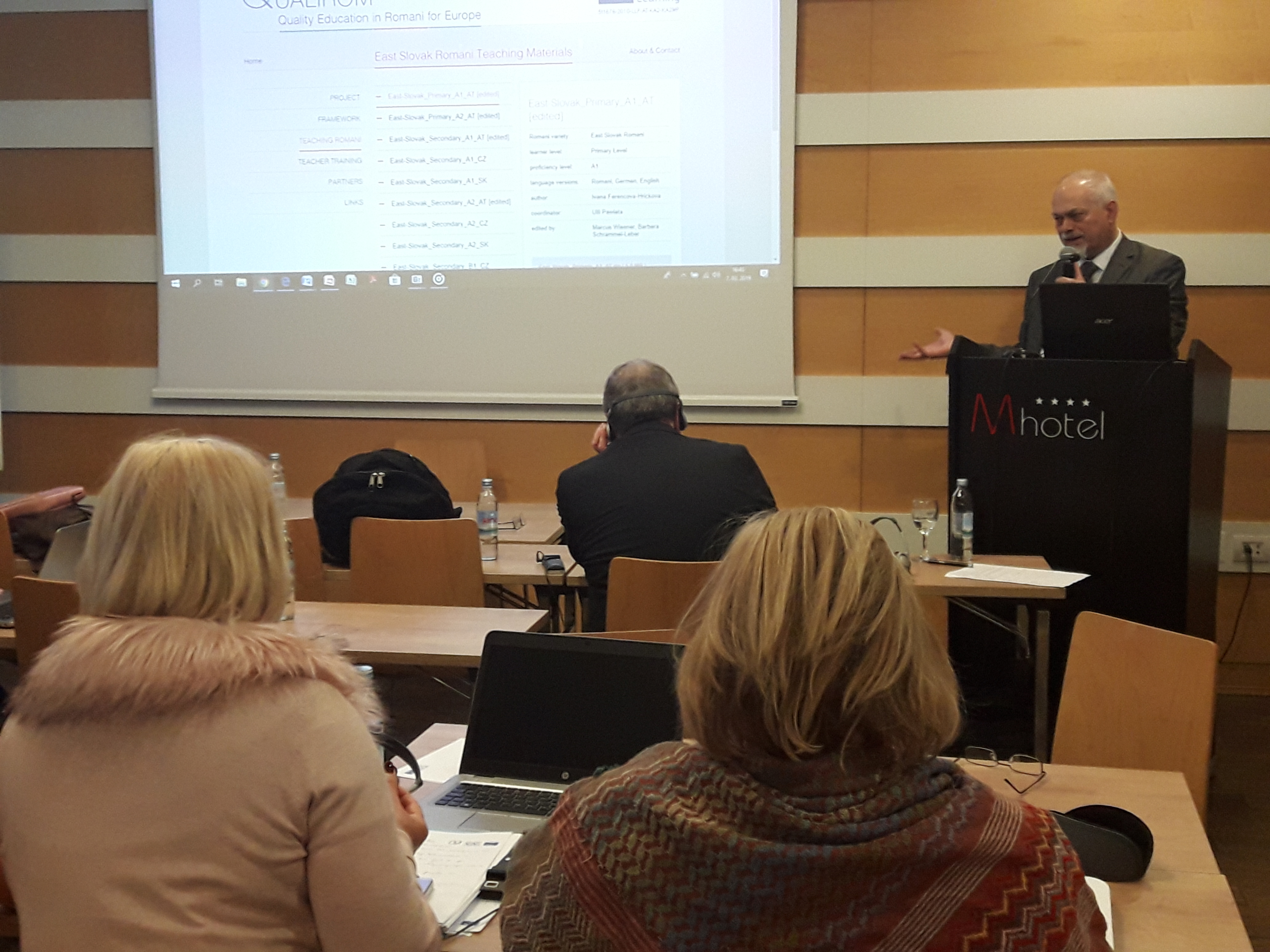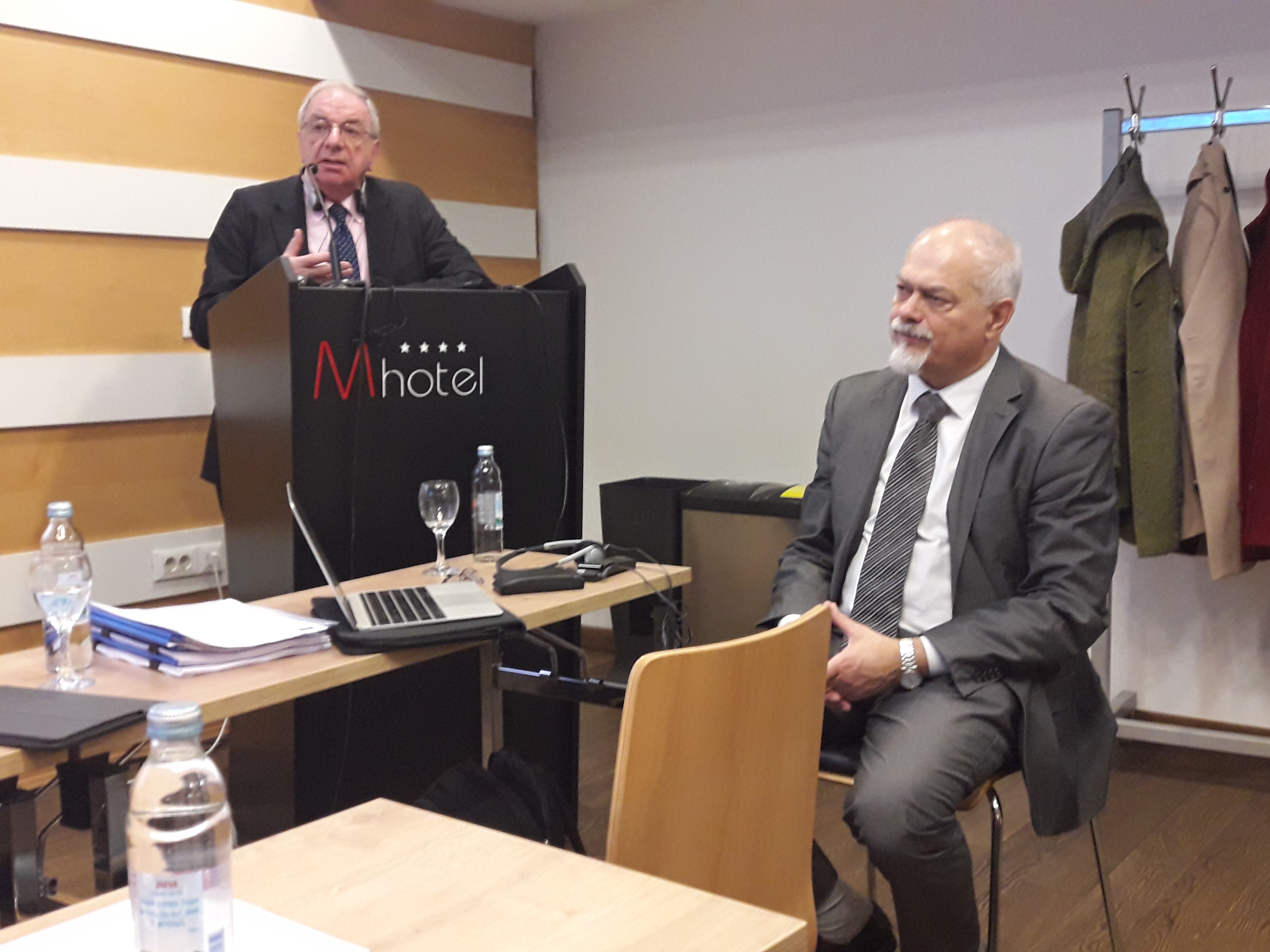Date: 7-8 March 2019
Venue: Ljubljana, Slovenia
Local organisation: Susanne Volčanšek, Zavod Republike Slovenije za šolstvo / The National Education Institute of Slovenia
ECML experts: Ján Hero, David G. Little
Participants: 33 consultants of the National Education Institute in Slovenia, researchers of the Educational Research Institute, preschool teachers, primary school teachers, representatives of the Office for National Minorities, representatives of the Ministry for science, education and sport, teachers of the Centre for School and Outdoor Education, journalists
*****
In partnership with the ECML, the National Education Institute in Slovenia and the Ministry for science, education and sport the QualiRom Training and consultancy event has been conducted in Slovenia for the second time. The seminar gathered participants involved in the education of Roma pupils with rather heterogenous backgrounds: pre-school and primary teachers, school directors, representatives of The National Education Institute in Slovenia, representatives of the Ministry for science, education and sport, researchers of the Educational Research Centre, representatives of non-governmental organisations dealing with Roma education, representatives of the Center for School and Outdoor Education, representatives of the Office for National Minorities and a journalist of the Slovene National television.
After a short introduction of the ECML Professor David Little and Jan Hero familiarized the participants with the Curriculum Framework for Romani (CFR) and both ELP for Romani language.
Participants agreed that the CFR is an important systemic tool for increasing the quality of Romani language teaching in Slovenia. They also agreed that the use of the ELPs will be an important guideline on how to conduct lessons in Romani language and intercultural learning as well. Mr Jan Hero introduced the QualiRom teaching materials and shared the Slovakian experience in education of Roma pupils.
The seminar offered the participants an opportunity to discuss about different challenges and obstacles they confront in the education of Roma pupils. The biggest challenge pointed out is the language barrier: many Roma pupils have a lack of language knowledge in both languages: Romani and Slovene. Entering school means for most Roma pupils that they need to learn two languages: Romani and Slovene. Teachers involved in education of Roma pupils feel overloaded by their own language barrier not knowing Romani. Thus they expressed the need for teaching materials, tools and guidelines for their work.
The National Institute of Education in Slovenia will provide a learning plan for the Romani language and intercultural learning which will also lean on the CFR. Participants agreed that only an efficient knowledge of the first language is crucial for successful learning of additional languages.
Susanne Volčanšek, local organiser
In Slovene language:
V Ljubljani je v organizaciji Zavoda RS za šolstvo in Ministrstva za izobraževanje, znanost in šport ter v sodelovanju z Evropskim centrom za moderne jezike v Gradcu potekal seminar »Ohranjanje in poučevanje romskega jezika v vzgoji in izobraževanju«, ki so se ga udeležili vodstveni in strokovni delavci v vrtcih in osnovnih in srednjih šolah, romski pomočniki, izvajalci v večnamenskih centrih, predstavniki (romskih) nevladnih organizacij, predstavniki ministrstva za izobraževanje, znanost in šport, raziskovalci Pedagoškega inštituta, svetovalci Zavoda RS za šolstvo ter druga zainteresirana javnost (novinarka televizijske oddaje za Rome So vakares, RTV Ljubljana).
Udeležencem seminarja sta predstavila dejavnosti in delovanje ECML David Little in Ján Hero, ki sta povedala, da je glavna značilnost Evropskega centra za moderne jezike organizacija mednarodnih projektov na področju jezikovnega izobraževanja. V nadaljevanju sta udeležencem predstavila dokumente, ki so jih na ECML pripravili za poučevanje in učenje romskega jezika, ki jim bodo lahko v pomoč pri nadaljnjem delu z romskimi učenci.
Udeleženci seminarja so izpostavili različne izzive ali težave, s katerimi se srečujejo tako na področju predšolske vzgoje kot ob vstopu romskih otrok v šolo. V prvi vrsti so izpostavili jezikovno bariero, saj romski otroci ne znajo dovolj dobro ne slovenskega ne romskega jezika. Pogostokrat se ob vstopu v šolo romski otroci začnejo učiti dva jezika, slovenskega in romskega. Prav tako vzgojitelji in učitelji ne znajo romskega jezika, ki ima poleg tega veliko dialektov. Vzgojitelji in učitelji so ob tem izrazili potrebo po pripomočkih, učnih gradivih, ki bi jim bili v pomoč v procesu vzgoje in poučevanja.
Na Zavodu RS za šolstvo pripravljajo »usmerjevalni načrt« kot podporno gradivo učiteljem za poučevanje romskega jezika. Dobro znanje materinščine je namreč pogoj za dobro razumevanje slovenščine.



